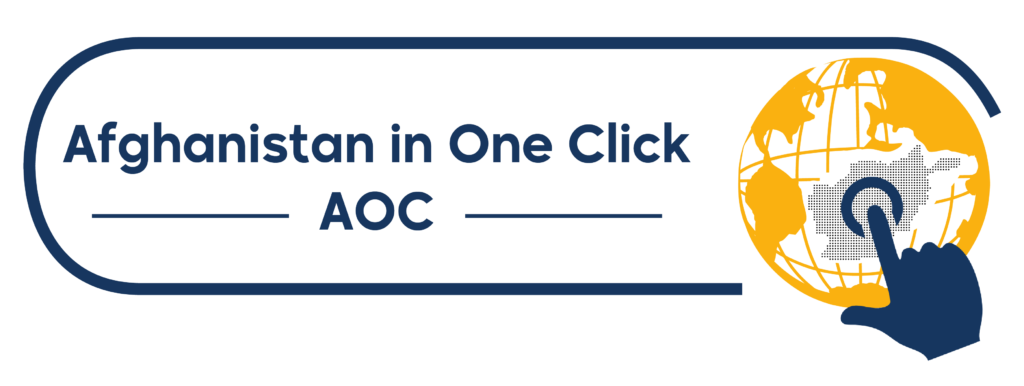Russia: The UN meeting on Afghanistan failed
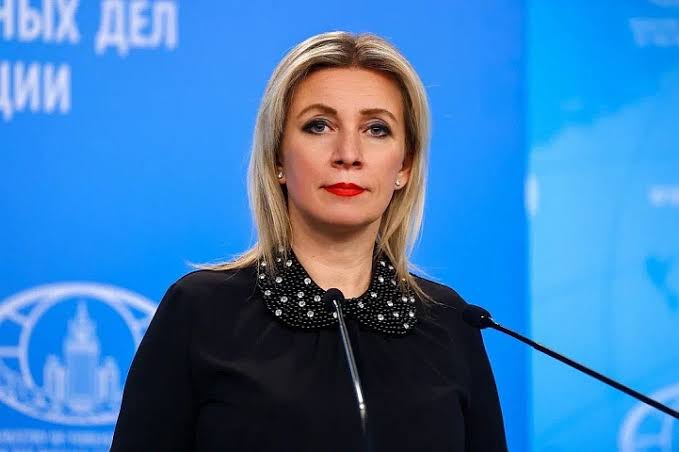 Maria Zakharova, the spokeswoman of the Russian Foreign Ministry, said in a statement that the meeting of the special representatives of the countries, which was hosted by Antonio Guterres, the Secretary General of the United Nations, was held in Doha, Qatar, and was a “failure”.
Maria Zakharova, the spokeswoman of the Russian Foreign Ministry, said in a statement that the meeting of the special representatives of the countries, which was hosted by Antonio Guterres, the Secretary General of the United Nations, was held in Doha, Qatar, and was a “failure”.
Russia’s Ria Novosti news agency reported on Tuesday (Hawt 1) quoting Zakharova that the meeting did not lead to any decision in accordance with previously announced plans, including the appointment of a special representative and the creation of a small contact group for Afghanistan.
According to him, such issues have been put on the agenda “without proper explanation”.
The spokesman of the Russian Foreign Ministry emphasized that any initiative regarding Afghanistan without the support of the caretaker government and the countries of the region is “doomed to failure.”
Maria Zakharova added: “The Taliban group refused to participate in this meeting due to the humiliating conditions caused by the fact that only minor events related to the fugitive envoys of the Afghan civil society were allowed.”
According to him, the representative of Russia also refused to meet Afghan civil society activists at the Doha meeting as a “sign of solidarity” with the caretaker government.
Five civil society activists and women’s rights defenders were present on behalf of Afghanistan at the Doha meeting hosted by the UN Secretary General on Sunday and Monday of this week.
Uzbekistan’s electricity exports to Afghanistan drop 50% due to technical issues
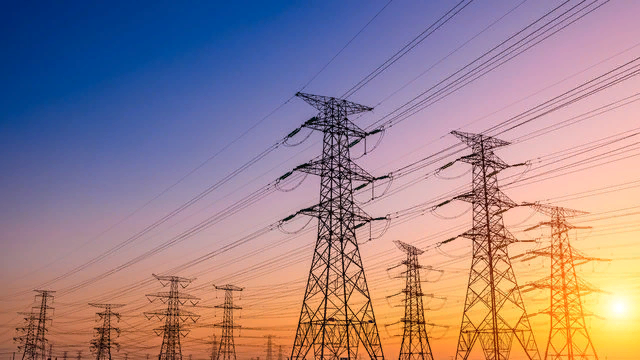 Da Afghanistan Breshna Sherkat (DABS), the country’s national power utility company, has announced that electricity imports from Uzbekistan have decreased by 50 percent due to technical issues.
Da Afghanistan Breshna Sherkat (DABS), the country’s national power utility company, has announced that electricity imports from Uzbekistan have decreased by 50 percent due to technical issues.
According to the company’s officials, reduction in supplies has increased power outages in Samangan, Parwan, Kapisa, Panjshir, Nangarhar, Laghman, Ghazni, Maidan Wardak, Logar, Paktia and Khost provinces.
“The only reason for the change in the electricity situation is that a technical problem has occurred in the territory of Uzbekistan, and this problem has caused the provinces of the electricity transmission route, including Kabul, to face problems. We are in contact with them, and this issue will be resolved soon,” said Hikmatullah Maiwandi, the spokesperson of DABS.
Last winter, Uzbekistan also reduced electricity exports to Afghanistan due to technical issues.
The officials of the caretaker government want Uzbekistan to resolve their technical problems so that the people of Afghanistan do not face a shortage of electricity. They emphasize that they have even paid Uzbekistan in advance for electricity.
“We have made advance payments. Their dues have been cleared. They have promised that they will try to increase electricity. We have no problem so far. In the future too, our electricity officials will pay attention to the needs of the people so that they do not face problems and our cities will not be left without electricity,” said Zabihullah Mujahid, the spokesman of the caretaker government.
Power outages usually increase in Afghanistan during winter when the weather gets cold and consumption rises.
caretaker government says that it aims to make Afghanistan self-reliant on electricity.
UN Assistant Secretary-General Kanni Wignaraja visits Afghanistan
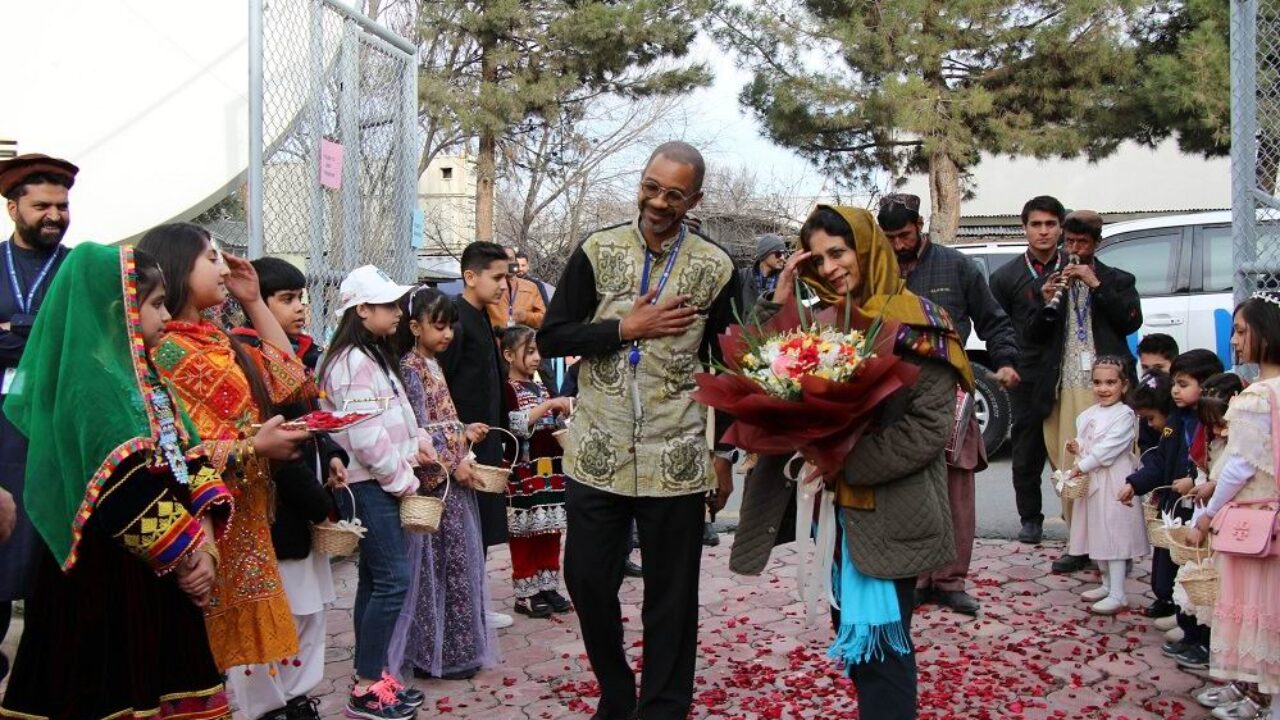 UN Assistant Secretary-General and UNDP Regional Director for Asia Pacific, Kanni Wignaraja, has arrived in Afghanistan, it was announced on Friday.
UN Assistant Secretary-General and UNDP Regional Director for Asia Pacific, Kanni Wignaraja, has arrived in Afghanistan, it was announced on Friday.
Discussions on livelihoods, women’s economic empowerment, climate resilience, basic services, inclusion and engagement with Afghan communities are on the agenda of Wignaraja, UNDP Afghanistan said on X.
She will also meet development partners and private sector, it added.
This comes as US special envoy for Afghan women, Rina Amiri, has met with UN Deputy Secretary-General Amina Mohammad.
Amiri said on X on Friday that they discussed the importance of supporting Afghan women and human rights.
“Concurred that the extreme policies against Afghan women pose a threat to women’s rights in the region & beyond,” Amiri said.
The meeting comes ahead of a UN conference on Afghanistan that will start in Doha on Sunday.
Kabir says caretaker government’s absence from UN meeting does not mean relations are strained
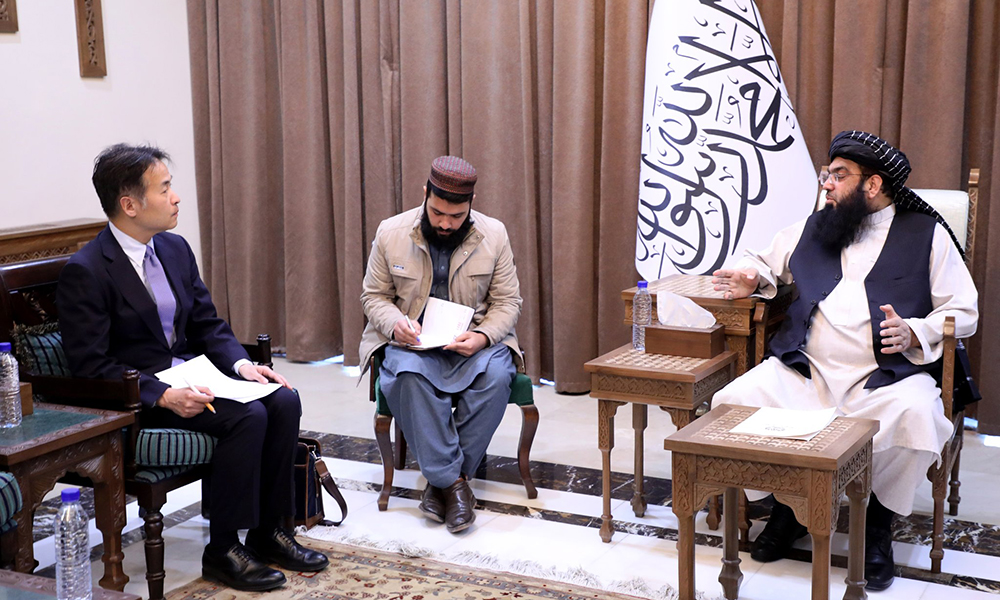 Deputy Prime Minister for Political Affairs Mawlavi Abdul Kabir says the Taliban wants a meaningful presence in future UN-sponsored meetings on Afghanistan.
Deputy Prime Minister for Political Affairs Mawlavi Abdul Kabir says the Taliban wants a meaningful presence in future UN-sponsored meetings on Afghanistan.
A day after the two-day Doha meeting wrapped up, Kabir said the caretaker government’s absence at the meeting did not mean Kabul’s relations with the international community are “gloomy”.
Kabir said the de facto governemnt is trying to have a “positive and meaningful” presence in future UN meetings.
In a meeting with the Japanese ambassador, Kabir said the caretaker government had been ready to attend the Doha meeting but had set conditions. He said the “designers” of the meeting missed this opportunity.
He also welcomed the UN Secretary General’s decision about the need for more meetings in future and said the IEA “views” these meetings favorably.
Meanwhile, the head of the IEA’s political office in Doha Suhail Shaheen said in an audio message that the reason for the caretaker government ‘s absence at this week’s meeting was that the conditions they had set were not met.
“We did not participate in the Doha meeting because the conditions were not accepted.”
Representatives of more than 25 countries attended the meeting that was held in Doha on Monday and Tuesday.
Addressing a press conference, Antonio Guterres, the Secretary General of the United Nations, said participants discussed “creating conditions in the next meeting for the presence of the ruling authorities of Afghanistan”.
Ebad discusses healthcare with UN agency
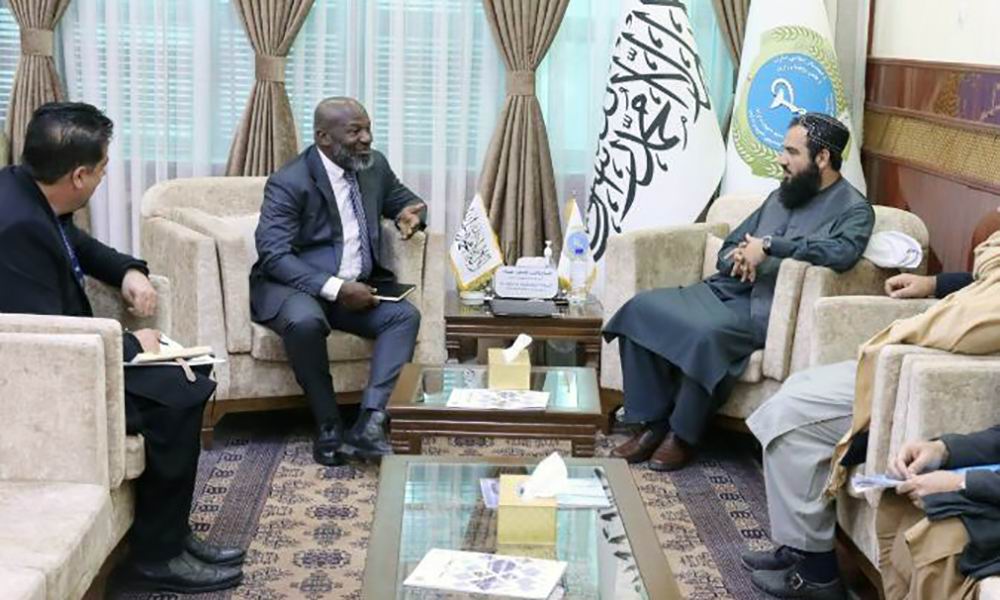 Acting health minister Qalandar Ebad, met Tuesday with the representative of the United Nations Population Fund in Afghanistan for discussions on bolstering the country’s healthcare infrastructure.
Acting health minister Qalandar Ebad, met Tuesday with the representative of the United Nations Population Fund in Afghanistan for discussions on bolstering the country’s healthcare infrastructure.
The meeting underscored collaborative efforts aimed at improving facilities, particularly through the refurbishment of health centers, enhancing mobile healthcare units, fostering greater coordination, providing technical assistance to health departments, and addressing other pertinent issues, a statement from the ministry read.
Ebad underscored the need for enhanced healthcare provision and the augmentation of public access to health services as being of paramount importance.
He expressed a steadfast commitment to elevating the caliber of health services in conjunction with health partners in the country.
Echoing the sentiments, the United Nations Population Fund representative reaffirmed the organization’s dedication to sustained collaboration in the healthcare domain.
Assuring ongoing support to the Ministry of Public Health, the representative pledged continued cooperation while acknowledging the prevailing constraints and opportunities.
BBC investigation: British special forces have blocked the resettlement requests of their Afghan colleagues
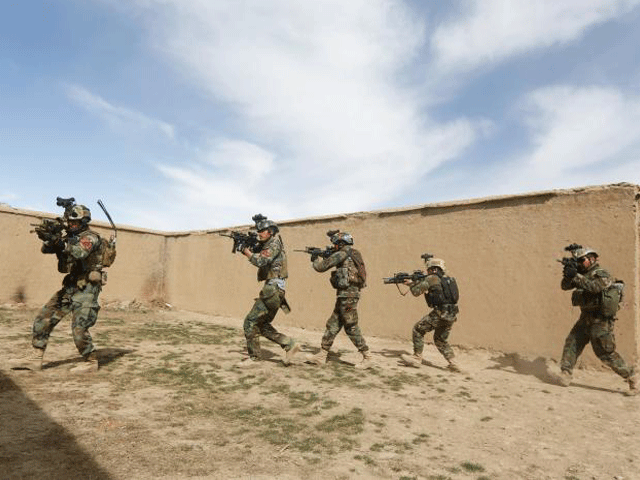 BBC Panorama reveals that after the Taliban took power, British special forces prevented the transfer of Afghan forces who were fighting alongside them to the UK.
BBC Panorama reveals that after the Taliban took power, British special forces prevented the transfer of Afghan forces who were fighting alongside them to the UK.
Leaked documents show that the Special Forces rejected their resettlement requests, despite some having strong evidence that they had served with the British military.
Afghan commandos accompanied British special forces on some of the most dangerous missions of the conflict.
Britain’s Ministry of Defense says it is conducting an independent investigation into the matter. With the Taliban’s sudden rise to power in August 2021, members of the Afghan Special Forces CF 333 and ATF 444 units, known as the “three-number” units, were among the groups most at risk because they were part of the British special forces in their battle. They had supported against the Taliban.
Russia announced that it will not participate in a meeting with representatives of the Afghan civil society in Doha "in consideration of the Taliban's request
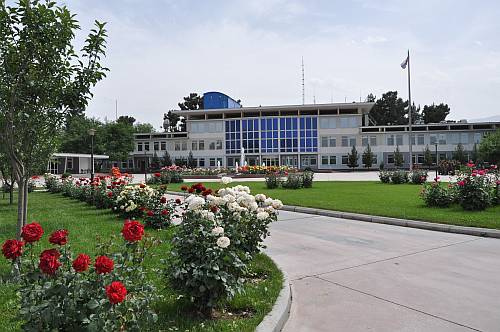 Russia announced that it will not participate in a meeting with representatives of the Afghan civil society in Doha “in consideration of the Taliban’s request”.
Russia announced that it will not participate in a meeting with representatives of the Afghan civil society in Doha “in consideration of the Taliban’s request”.
The Russian embassy in Kabul supported the position of the representatives of the Taliban government, who demanded a direct dialogue with the UN Secretary-General and also opposed the presence of representatives of the civil society in this meeting.
The Russian Embassy has called the representatives of women and civil society of Afghanistan as activists of “Nam Nahad” and said: “Considering the requests of the Afghan government, the Russian side decided to refuse to participate in the meeting organized with the company of Na Nahad of Afghan civil activists. The selection of the aforementioned civil activists was done in a non-transparent manner behind Kabul’s back.
Yesterday, Mohammad Naeem, the representative of the Taliban in Doha, told the BBC that the non-acceptance of the terms of the Taliban government, including a face-to-face conversation with the UN Secretary General and being the “only official representative” from Afghanistan, are among the main reasons for the Taliban’s non-participation in the Doha meeting. Is. He said that their other request for non-attendance of representatives of civil society in this meeting was not considered.
Several active women and representatives of the civil society of Afghanistan, including three women – Mitra Mehran, Shahgol Rezaei and Mehbooba Siraj – are participating in the Doha meeting.
Ashraf Ghani went to Hajj Umrah in his first trip after the fall of Kabul to the Taliban
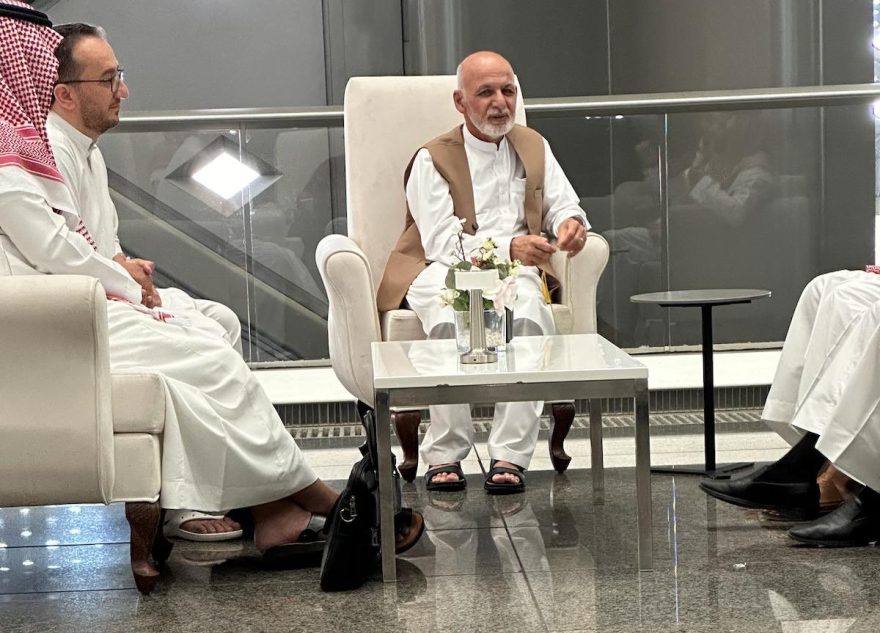 A source close to Mohammad Ashraf Ghani, the former president of Afghanistan, has confirmed to the BBC that he went to Saudi Arabia to perform Hajj Umrah.
A source close to Mohammad Ashraf Ghani, the former president of Afghanistan, has confirmed to the BBC that he went to Saudi Arabia to perform Hajj Umrah.
Apparently, this is Mr. Ghani’s first trip outside the United Arab Emirates in more than two years.
Ashraf Ghani unexpectedly left the presidential palace on August 15, 2021 after winning the second term of the presidency following a controversial election that led to the fall of the republican system and the recapture of government power by the Taliban group.
In some videos that have been broadcasted on social networks and some media, Mr. Ghani can be seen in Ihram clothes and among some Arab bodyguards.
It has been said in the reports that he was not received according to the diplomatic protocol for world leaders.
According to a source close to Ashraf Ghani, in the last two years, he requested a trip to perform Hajj Umrah, which was “delayed”.
Before this, unconfirmed reports were published that Mr. Ghani was banned from political activities by the United Arab Emirates, but he expressed his views on the situation in Afghanistan, the reasons for the fall of the previous regime supported by the United States and Turkey, in interviews and sometimes through social networks. Afghanistan has stated.
The publication of the news of the first visit of the former president of Afghanistan to Saudi Arabia has been accompanied by many reactions on social networks and among Afghan users.
UN survey: Two thirds of Afghan women say that the official status of the Taliban is after the complete lifting of restrictions
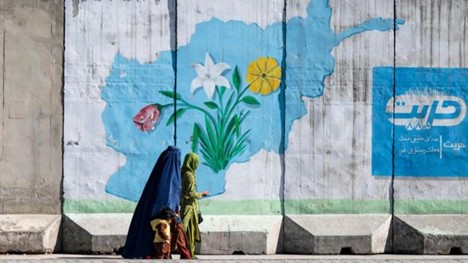 In its latest report before the meeting of representatives of countries in Doha, Qatar, the United Nations says that Taliban group agents have “increased” the harassment of women in public places.
In its latest report before the meeting of representatives of countries in Doha, Qatar, the United Nations says that Taliban group agents have “increased” the harassment of women in public places.
The new report by the United Nations Women’s Department, the International Organization for Migration (IOM) and the UNAMA office in Kabul was conducted based on online and face-to-face interviews with 745 women in 34 provinces of Afghanistan from January 27 to February 8.
Two-thirds of the women who participated in the survey said that the recognition of the Taliban government should come after all restrictions on women are lifted.
28% of these women also say that the Taliban should not be recognized in any way.
In July 2023, in response to a similar question, 96 percent of women said that the formalization of the Taliban should happen after improving women’s rights or should never happen.
Efforts Ongoing to Increase Ground, Air Travel with Iran
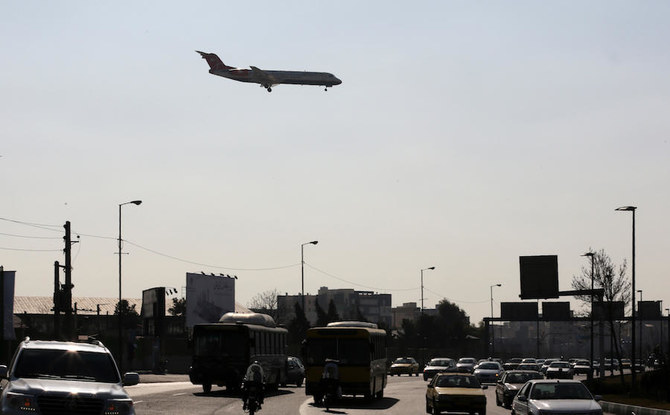 The Ministry of Industry and Commerce (MoIC) said that within one year, approximately $1.739 billion in trade has been conducted with Iran.
The Ministry of Industry and Commerce (MoIC) said that within one year, approximately $1.739 billion in trade has been conducted with Iran.
Hamidullah Akhundzada, the acting minister of Transport and Civil Aviation (MoTCA), met with Hassan Kazemi Qomi, the Iranian ambassador and special representative to Afghanistan, and they discussed the development of bilateral relations, sustainable cooperation in the field of transportation, and creating more facilities in the field of land and air transportation, according to a statement issued by MoTCA.
The statement said that the two sides also stressed increasing Afghanistan’s exports to Iran through road and rail transportation, and using Chabahar port for the export and import of commercial goods of Afghanistan.
“There was discussion about the transportation and that the time period for transit at the ports between Afghanistan and Iran should be increased,” said Imamuddin Ahmadi, spokesman for the MoTCA.
The Ministry of Industry and Commerce (MoIC) said that within one year, approximately $1.739 billion in trade has been conducted with Iran.
According to the MoIC’s spokesman, Akhundzada Abdul Salam, of $1.739 billion trade with Iran, $25 million was Afghanistan’s export.
“$25 million was exported and $1.714 billion was imported. Our exports included cotton, thread… raisins,” he said.
The Afghanistan’s Chamber of Commerce and Investment (ACCI) said that high tariffs at the custom offices are the main reason for the reduction of Afghanistan’s exports to Iran.
“We have less exports to Iran because of high tariffs on commodities and Afghan products. There are negotiations in this regard,” said Mohammad Younus Momand, deputy head of ACCI.
Earlier, a delegation led by the deputy Prime Minister for Economic Affairs, Mullah Abdul Ghani Baradar, on a visit to Iran signed some agreements with government and private sector officials of the country.
Japan Provides $13.5 Million to WFP for Afghanistan
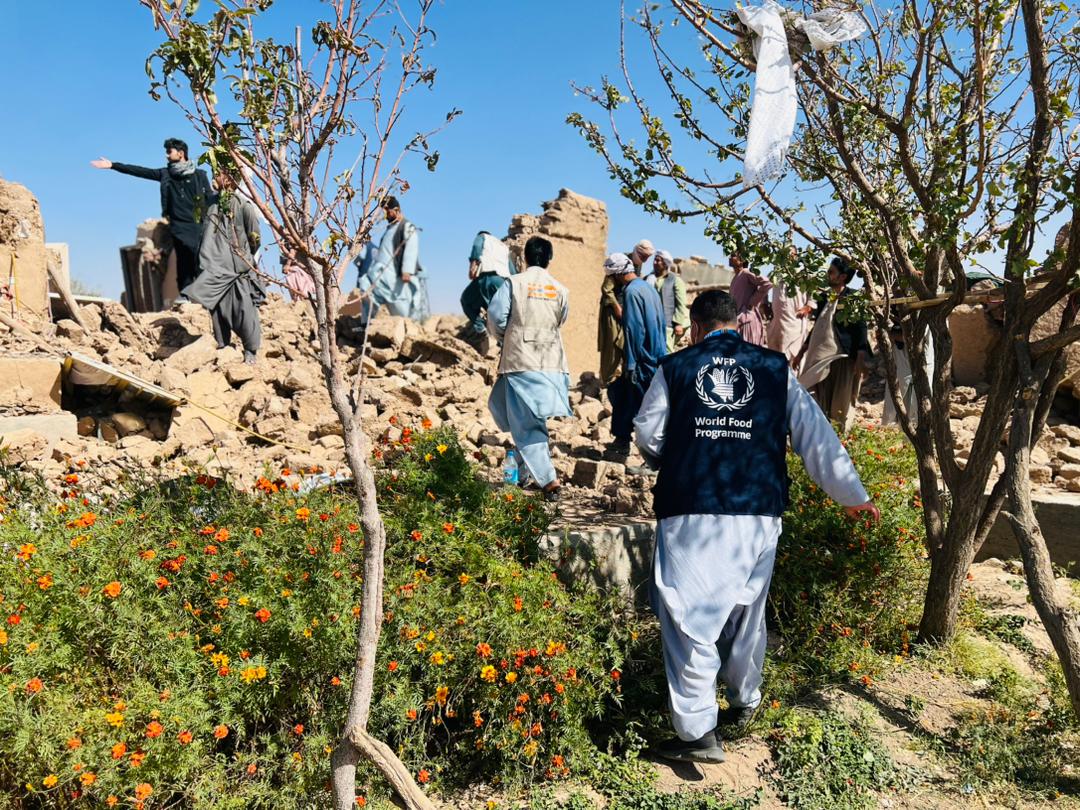 The World Food Programme (WFP) has announced the humanitarian aid of $13.5 million dollars from Japan to the people of Afghanistan.
The World Food Programme (WFP) has announced the humanitarian aid of $13.5 million dollars from Japan to the people of Afghanistan.
According to WFP, the funding will help WFP deliver emergency food and nutrition assistance to food-insecure people, support school children to learn better and keep the United Nations Humanitarian Air Services (UNHAS) operational.
WFP said: “With this contribution, WFP plans to reach nearly 630,000 food-insecure people through food assistance and treat more than 42,000 malnourished pregnant and breastfeeding mothers and children. Almost 36,000 school children in primary school will receive fortified biscuits as daily school snacks to help them stay healthy and learn better.”
Meanwhile, some residents of the capital who are facing economic challenges, asked the caretaker government to distribute aid to the needy people in a transparent manner.
Barat Khan, a Kabul resident, said: “We earn 200 to 250 Afghanis a day and our family members are large and the money is not sufficient.”
Zabihullah Mujahid, the spokesman of the caretaker government, said: “The economic situation in Afghanistan is normal and it is affected after the war and forty years of war have passed in this country. The countries that help us should increase their cooperation. We appreciate their help and we want more help from them, but the distribution of aid will be good.
The Ministry of Economy welcomed the aid of the countries of the world to Afghanistan and emphasized the continuation of this aid in the development and infrastructure programs of the country.
Abdul Rahman Habib, spokesman for the Ministry of Economy, said: “In addition to humanitarian aid, donor organizations and countries should focus on employment-generating sectors that lead to job opportunities through the implementation of development projects.”
Earlier, WFP announced $2.2 million from Denmark for humanitarian aid to Afghanistan and said that the total aid of this country to Afghanistan since 2015 has reached $36.4 million dollars.
Efforts Underway to Standardize Airports
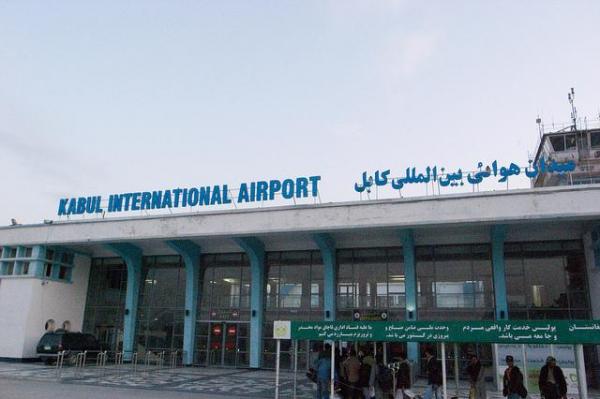 The Ministry of Transport and Civil Aviation said that they are working to standardize Afghanistan’s airports on the international level.
The Ministry of Transport and Civil Aviation said that they are working to standardize Afghanistan’s airports on the international level.
Officials at the ministry said that 27 airports are currently operating in the country, and five of them are international.
They said that they rebuilt some airports including Kabul International Airport after the takeover of the Taliban group.
“After the withdrawal of US and NATO, Afghanistan’s airports were crippled, all airports were damaged, their equipment was inoperative. We were able to equip the airports,” said Imamudin Ahmadi, spokesperson for the Ministry of Transport and Civil Aviation.
Meanwhile, former officials of the ministry said that for international flights by international airlines, the airports should be in line with global standards.
“Infrastructure is very important particularly in airports. Having standard international airports especially in big provinces is a need,” said Imamudin Warimach, former deputy minister of Transport and Civil Aviation.
Officials of Afghanistan Chamber of Commerce and Investment (ACCI) said that the problems of getting regional and other countries’ visas should be resolved to increase international flights.
“India is not giving us visas. China, Russia, UAE and some Central Asian countries also do not give us visas. There are also traders who need to travel abroad,” said Khan Jan Alokozay, a member of the board of ACCI.
Earlier, Fly Dubai and Air Arabia restarted their flights to Afghanistan.
Turkish Investors Interested in Investment in Afghanistan
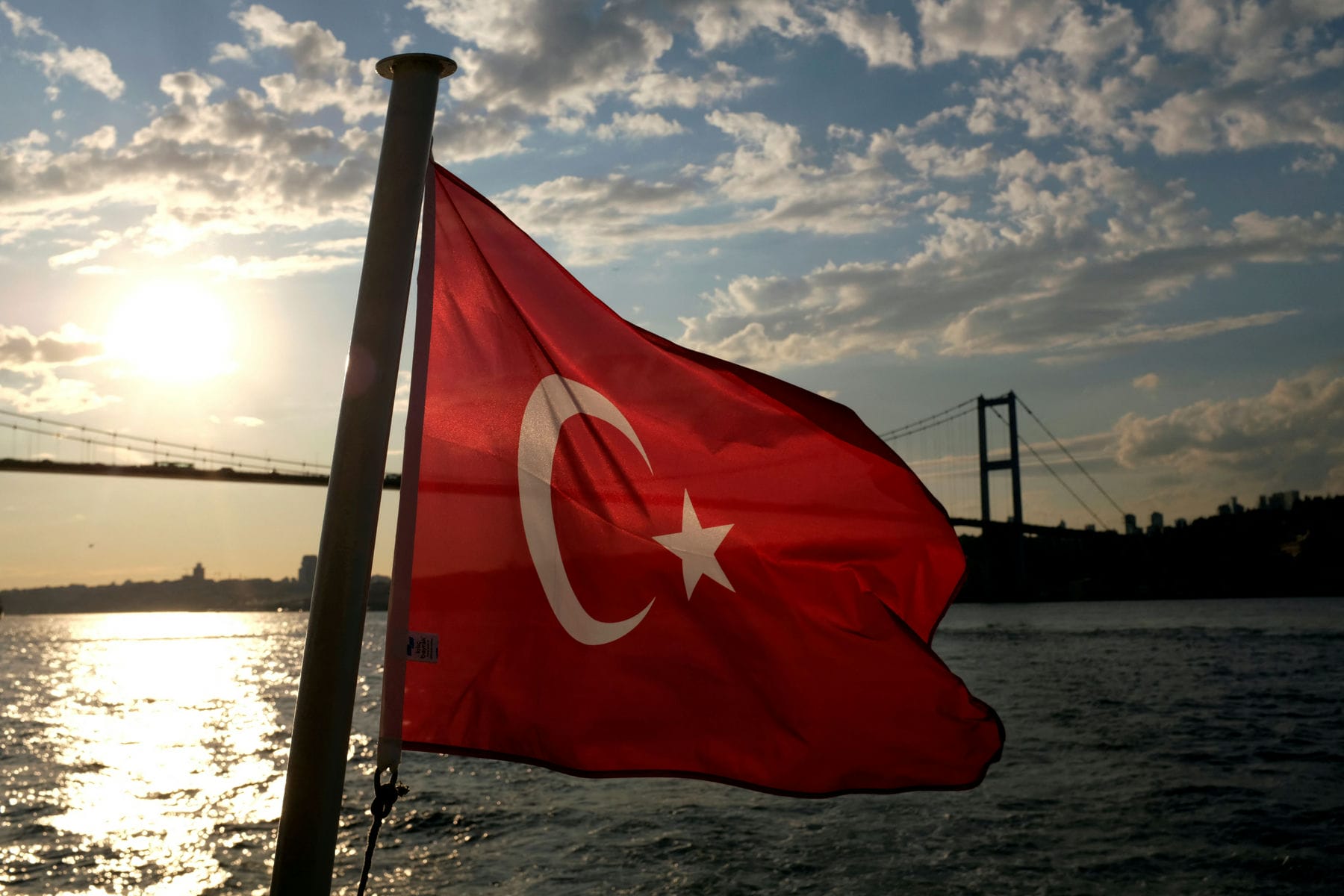 The Ministry of Commerce and Industry said that Turkish businesspeople have shown interest in investing in electric power, airports and industrial parks for Afghanistan.
The Ministry of Commerce and Industry said that Turkish businesspeople have shown interest in investing in electric power, airports and industrial parks for Afghanistan.
According to the officials in the MoCI, the deputy of the ministry Qudratullah Jamal, in a meeting with Turkish investors, said that commerce and industry should not be sacrificed in politics and that investment by Turkish investors will strengthen bilateral trade relations between the two countries.
“In the meeting, Turkish investors have shown interest in investing in Afghanistan’s electricity, airports and industrial parks and commercial townships,” said Abdul Salaam Jawad Akhundzada, the spokesman for the Ministry of Commerce and Industry.
Political analysts said that recognition of the caretaker government and the world’s engagement with the Afghan government will help increase foreign investment and implementation of infrastructure and development projects in the country.
“The biggest challenge that has prevented investments in the country is the lack of international recognition of the caretaker government. I believe that recognition and the world’s engagement with Afghanistan will attract investment to Afghanistan because the country is a good place for investment,” said Nasir Reshtia, a political analyst.
Meanwhile, authorities of the Afghanistan Chamber of Commerce and Investment (ACCA) said that to expand Afghanistan’s commerce with European countries, there is a need to increase trade with Turkiye.
“We should focus on resolving our transport and transit problems, then we will be able to connect with Europe through Turkiye,” said Mirwais Hotak, head of the board of directors at ACCA.
Earlier the Ministry of Commerce and Industry said that Afghanistan had $100 million worth of trade with Turkiye in 2023, with exports making up $23 million.
Kabul Responds to Reports of China's Need for Afghan Lithium, Copper
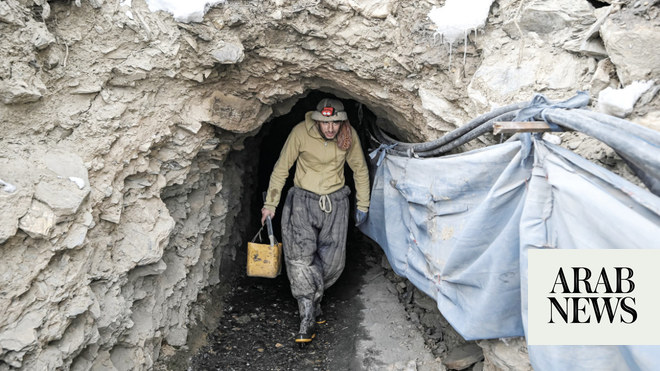 An op-ed published on region-focused news outlet Eurasian Times, which cited other news reports, said that China needs Afghanistan’s lithium and copper mines to dominate the supply chains of components needed to make electric vehicle batteries and smartphones.
An op-ed published on region-focused news outlet Eurasian Times, which cited other news reports, said that China needs Afghanistan’s lithium and copper mines to dominate the supply chains of components needed to make electric vehicle batteries and smartphones.
According to the op-ed, since the Taliban group came to power, China has established positive political and economic interactions with the country.
The Ministry of Mines and Petroleum said that lithium and copper are the most important and strategic mines of Afghanistan and in addition to Chinese investors, other countries also expressed their interest to take these contracts.
The spokesman for the Ministry of Mines and Petroleum, Homayoun Afghan, said: “In the lithium sector, many companies, including the Chinese company, came and showed their interest in this sector, but no contract has been signed with anyone yet.”
Meanwhile, the officials of the country’s economic and trade sector also said the economic and trade relations between China and Afghanistan are developing.
Abdul Latif Nazari, the deputy minister of Economy, said: “The caretaker government has extensive economic and trade relations with countries — including China — based on the country’s national interests. Our effort is to consider the economic growth and development of the country in our economic relations.”
Economic analysts said the country’s mines are the nation’s capital. Analysts said that China has a serious need for Afghanistan’s mines.
“China, as a large and powerful economic country in the world with its work capacities, plays a very big role in every country and every region it interacts with,” said Qutbuddin Yaqubi, an economic analyst.
According to information provided to TOLOnews, the Ministry of Mines and Petroleum has currently signed exploration and extraction contracts with foreign companies for the exploration and extraction of three large oil mines in the Qashqari Block of the Amu river and the Herat iron mine.
Russia Claims to Have Laid Foundation for Afghan Economy
 Maria Zakharova, spokeswoman for Russia’s foreign ministry, at a conference said that the Soviet Union established more than 140 industrial facilities in Afghanistan that still form the foundation of the country’s economy.
Maria Zakharova, spokeswoman for Russia’s foreign ministry, at a conference said that the Soviet Union established more than 140 industrial facilities in Afghanistan that still form the foundation of the country’s economy.
The spokeswoman added that the 20-year presence of NATO in Afghanistan has had negative effects on the country.
Zakharova said: “The former Soviet Union laid the foundations of Afghanistan’s economy by building more than 140 industrial facilities. But NATO resorted to using the ‘GBU-43/B MOAB’ in this country, and the NATO operation in Afghanistan ended with a ‘complete failure’.”
A number of economic analysts said that during the occupation of Afghanistan by the Soviet Union, investments were made in the country. But the civil wars destroyed all the country’s infrastructure.
According to analysts, around $150 billion were invested in the country at that time, but the civil wars caused losses worth $250 billion to Afghanistan.
“From the presence of big powers such as Russia and NATO, we didn’t get much to use economically,” said Sayed Massod, an economic analyst.
Khan Jan Alokozay, a member of the ACCI’s board of directors, said: “A part of our country was destroyed by Russians and Americans, and mostly our country was destroyed in the civil wars.”
The Ministry of Economy said that both during the presence of the Soviet Red Army and during the presence of the United States in Afghanistan, the country’s economy was broken and dependent, but the caretaker government is trying to make the country’s economy self-sufficient by launching effective programs.
“During the caretaker government period, we are trying to repair the economic fracture and lead the country’s economy from dependence to self-sufficiency,” said Abdul Latif Nazari, the deputy minister of Economy.
Zabihullah Mujahid, the spokesman of the de facto government, said: “We should not think that the Soviet occupation improved the country’s economy, although they made promises, we saw that the opposite resulted. The occupiers do not settle the country.”
During the reign of Zahir Shah and Daud Khan in Afghanistan, many Russian projects were implemented including the construction of electricity plants, the Salang highway, the Nangarhar Canal and Herat-Kandahar highway.
Tajikistan to increase power exports to Afghanistan
 Tajikistan’s state-owned power company, Barki Tojik, has said it intends to increase electricity exports to Afghanistan, despite its own shortages.
Tajikistan’s state-owned power company, Barki Tojik, has said it intends to increase electricity exports to Afghanistan, despite its own shortages.
According to the head of Barki Tojik, Mahmadumar Asozoda, Tajikistan will increase supply to Afghanistan this year by 17%.
Barki Tojik exported 2.7 billion kilowatt-hours in 2023, which was 124 million kilowatt-hours more than 2022. Of that total, some 1.6 billion kilowatt-hours were supplied to Afghanistan, Asozoda said.
Another 907.5 million kilowatt-hours of electricity were sold to Uzbekistan, and the remaining 144.6 million kilowatt hours went to Kazakhstan.
However, Asozoda also said that the increase to Afghanistan would come despite ongoing electricity rationing for Tajik households, Eurasianet reported.
A rationing regime has been in force for a number of winters in Tajikistan. When the temperature sinks below a certain level, output from the Nurek hydropower plant, which produces most of the country’s electricity needs, grinds to a near-halt.
Under the current system, Tajik households outside the country’s largest urban centers endure blackouts from 8 am to 5 pm and then from 10 pm to 5 am.
Asozoda noted that one factor that influenced their decision to increase power exports to Afghanistan was that the caretaker government was proving to be a “reliable payer”.
On February 1, Tajik Energy and Water Resources Minister Daler Juma announced that Afghanistan had fully paid off its debts for power delivered to date.
IEA officials also confirmed that they had paid off their electricity bills — to the full amount of $627 million — to all its suppliers, which also include Iran, Uzbekistan and Turkmenistan.
Import, export volumes total $7.5 billion in 1st nine months of this solar year
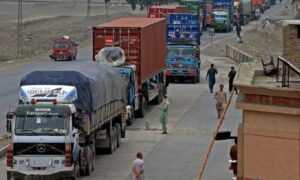 solar year – 1402, the National Statistics and Information Authority (NSIA) said on Monday.
solar year – 1402, the National Statistics and Information Authority (NSIA) said on Monday.
NSIA said exports totaled $1.35 billion while imports amounted to $6.22 billion.
Last solar year, 1401, saw exports total $1.37 billion while imports totaled $5.12 billion.
NSIA said most exports went to Pakistan ($689.9 million), followed by India ($463 million) and the UAE ($32 million).
The most popular export item was dried fruit, which totaled $342.7 million. Medicinal plants, minerals and fresh fruit were second, third and fourth respectively.
The authority stated that the most imported items in the first nine months of this solar year came from Iran and totaled $1.31 billion.
Goods from Pakistan followed totaling $1.15 billion and then China with goods worth $1.14 billion.
Imports were dominated by fuel, petroleum and gas, at $1.1 billion, followed by machinery, vehicles and spare parts which totaled $691.9 million.
Other high volume goods included textiles, metals and metal products.
Economic Commission approves installation of scanners at 12 customs units at border crossings
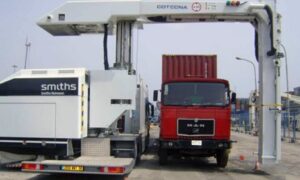 The Economic Commission on Tuesday approved the installation of electronic scanners at 12 customs units at border crossings across the country.
The Economic Commission on Tuesday approved the installation of electronic scanners at 12 customs units at border crossings across the country.
During its routine session in Kabul, the commission addressed a range of topics, including the installation of the scanners by the private sector, as well as the economic strategy outlined by the Ministry of Urban Development and Housing.
The meeting was chaired by Mullah Abdul Ghani Baradar, Deputy Prime Minister for Economic Affairs.
The installation of the scanners will be a public-private partnership and private investors will reportedly invest about eight billion Afghanis in the initiative.
Commission members deliberated the economic blueprint for the project, presented by the Ministry of Urban Development and Housing. Following an assessment, the commission designated the ministry as the primary policymaker for the initiative.
Surveying, designing, and overseeing the project will fall under the ministry’s purview, while implementation will be overseen by relevant ministries and agencies.
Gama shows interest in developing railway sector in exchange for rights to mine
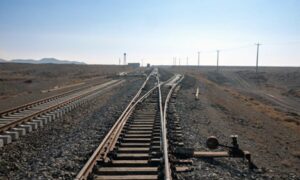 Afghanistan Railway Authority’s (ARA) CEO Bakhtur Rahman Sharaft met with a delegation of executives from Gama, a multinational company, to discuss various opportunities including railways and mining.
Afghanistan Railway Authority’s (ARA) CEO Bakhtur Rahman Sharaft met with a delegation of executives from Gama, a multinational company, to discuss various opportunities including railways and mining.
Sharaft said at the meeting that investment in the railway sector would be welcomed as it would help develop the economy.
Members of the executive committee of Gama said the company wants to invest in the railway sector in exchange for rights to extract minerals. They said they want to connect Herat, Nimroz, Kandahar and other provinces to the commercial port of Chabahar in Iran.
The head of ARA said the company would invest in the economic development of Afghanistan and assured the delegation of full cooperation.
Gamma operates across Europe and Asia in multiple sectors including construction, renewable energy, power transmission, mining, railways among others.
Locals Say Ibrahim Sanjrani Fort in Nimroz Needs Repair
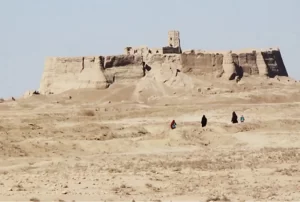 They asked the Islamic Emirate to pay serious attention to the restoration and maintenance of this historical site.
They asked the Islamic Emirate to pay serious attention to the restoration and maintenance of this historical site.
Cultural activists in Nimroz said that the ancient fort Ibrahim Khan Sanjrani in this province’s Chakhansur district is at risk of deterioration.
They asked the Islamic Emirate to pay serious attention to the restoration and maintenance of this historical site.
This castle is believed to have a 400-year history.
“If there is anything about which we can be proud, it is clearly our history, and the best way to describe our history is through ancient works,” cultural activist Omid Baloch told a TOLOnews correspondent covering Nimroz.
“Ibrahim Khan Sanjrani Castle is one of the most famous historical castles that shows our history and identity. We ask the government to restore this historical castle,” Mehrullah Baloch, another cultural activist said.
However, local officials of Nimroz said that efforts are underway to restore and maintain the historical area in this province.
“It is our responsibility to take care of ancient monuments because they are both historical and can be a source of income for us,” said Habibullah Elham, head of information and culture in Nimroz.
According to provincial officials, the majority of the historical castles and monuments in this province date back to the ancient Sistan era.
Foreign Tourists Visit Northern Provinces of, Samangan, Balkh
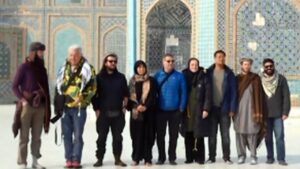 A group of ten foreign tourists, after traveling to the provinces of Kabul, Herat, Bamiyan and Samangan, have now gone to the city of Mazar-e-Sharif.
A group of ten foreign tourists, after traveling to the provinces of Kabul, Herat, Bamiyan and Samangan, have now gone to the city of Mazar-e-Sharif.
These tourists said that Afghanistan is an attractive country in terms of culture and history, and hospitality in this country has a special reputation.
These tourists are from the US, Australia, Japan, Poland, El Salvador, Great Britain, Vietnam and Germany.
Matty Deas, a tourist, told TOLOnews: “We are spending ten days in Afghanistan. We started in Kabul then Herat and Bamiyan and now we are here in Mazar, and we will finish in a couple of days in Kabul. We love spending time here in Afghanistan, the people are very friendly. We have seen some amazing sights, a lot of culture and a lot of history. The food has been great as well and everyone has made us feel very welcome.”
Jasue Minjivar, another tourist, said: “I had a curiosity to come here to Afghanistan just to meet the people, the culture, the food — different aspects of living here in the country — and I have been pretty amazed by what I have seen so far here in all the different provinces of the country.”
Meanwhile, Zabihullah Noorani, head of information and culture of Balkh, said that Afghanistan is a good place for tourism at the moment.
Noorani said: “Currently, Afghanistan is secure, and all the provinces have good security, and anyone can visit the provinces and the districts safely. Everyone is assured of security and tourists come to Afghanistan and visit the historical places and tourist attractions of the country with peace of mind.”
Afghanistan, with many historic and tourist attractions, draws foreign tourists every year. In recent months, hundreds of tourists from different countries have come to Afghanistan.
Subscribe Now
Don’t miss our future updates! Get Subscribed Today!
© 2023 White Assembly. All Rights Reserved.
